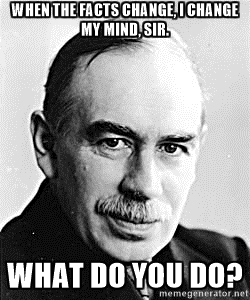In the standard mainstream economic analysis a demand expansion may very well raise measured productivity in the short run. But in the long run, expansionary demand policy measures cannot lead to sustained higher productivity and output levels. In some non-standard heterodox analyses, however, labour productivity growth is often described as a function of output growth. The rate of technical progress varies directly with the rate of growth according to Verdoorn’s law. Growth and productivity is in this view highly demand-determined, not only in the short run but also in the long run. Given that Verdoorn’s law is operative, expansionary economic policies actually may lead to increases in productivity and growth. Living in a world permeated by genuine Keynes-type uncertainty, we can, of course, not with any greater precision forecast how great those effects would be. So, the nodal point is — has Verdoorn’s Law been validated or not in empirical studies? There have been hundreds of studies that have tried to answer that question, and as could be imagined, the answers differ. The law has been investigated with different econometric methods (time-series, IV, OLS, ECM, cointegration, etc.). The statistical and econometric problems are enormous (especially when it comes to the question on the direction of causality).
Topics:
Lars Pålsson Syll considers the following as important: Economics
This could be interesting, too:
Lars Pålsson Syll writes Schuldenbremse bye bye
Lars Pålsson Syll writes What’s wrong with economics — a primer
Lars Pålsson Syll writes Krigskeynesianismens återkomst
Lars Pålsson Syll writes Finding Eigenvalues and Eigenvectors (student stuff)
In the standard mainstream economic analysis a demand expansion may very well raise measured productivity in the short run. But in the long run, expansionary demand policy measures cannot lead to sustained higher productivity and output levels.
 In some non-standard heterodox analyses, however, labour productivity growth is often described as a function of output growth. The rate of technical progress varies directly with the rate of growth according to Verdoorn’s law. Growth and productivity is in this view highly demand-determined, not only in the short run but also in the long run.
In some non-standard heterodox analyses, however, labour productivity growth is often described as a function of output growth. The rate of technical progress varies directly with the rate of growth according to Verdoorn’s law. Growth and productivity is in this view highly demand-determined, not only in the short run but also in the long run.
Given that Verdoorn’s law is operative, expansionary economic policies actually may lead to increases in productivity and growth. Living in a world permeated by genuine Keynes-type uncertainty, we can, of course, not with any greater precision forecast how great those effects would be.
 So, the nodal point is — has Verdoorn’s Law been validated or not in empirical studies?
So, the nodal point is — has Verdoorn’s Law been validated or not in empirical studies?
There have been hundreds of studies that have tried to answer that question, and as could be imagined, the answers differ. The law has been investigated with different econometric methods (time-series, IV, OLS, ECM, cointegration, etc.). The statistical and econometric problems are enormous (especially when it comes to the question on the direction of causality). Given this, however, most studies on the country level do confirm that the Verdoorn law holds.
Conclusion: demand policy measures can have both short and long run effects.
